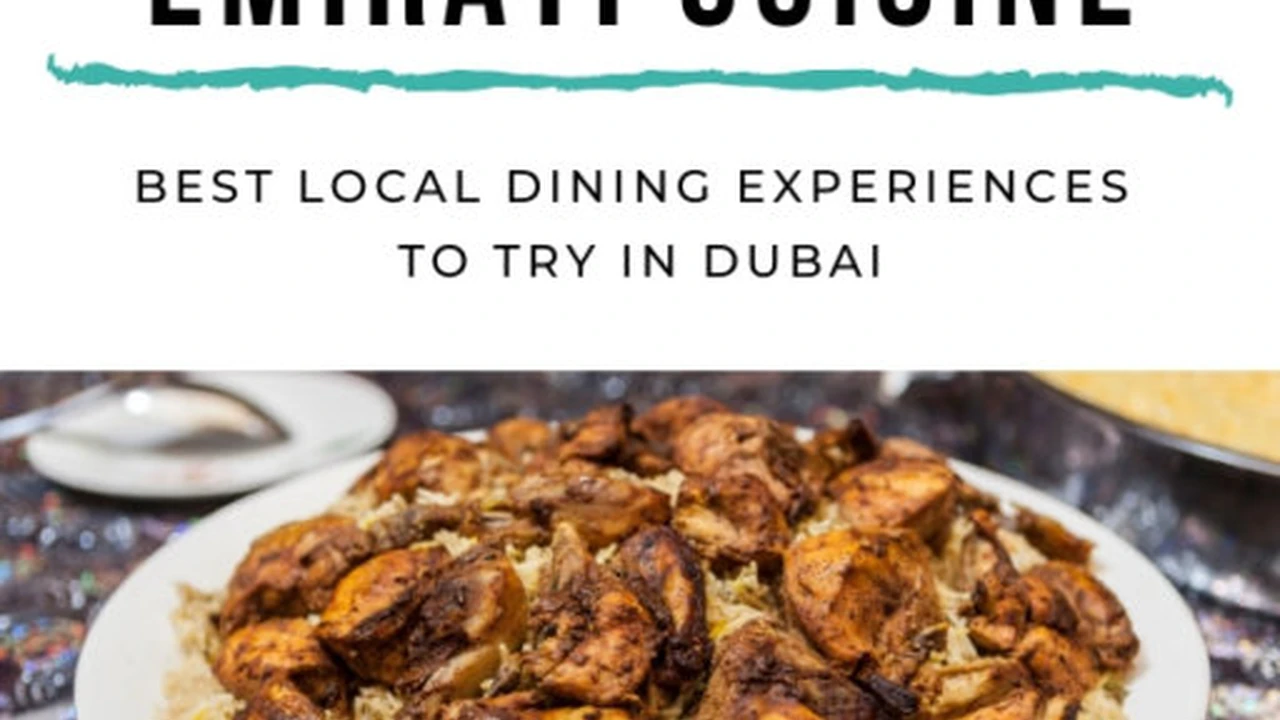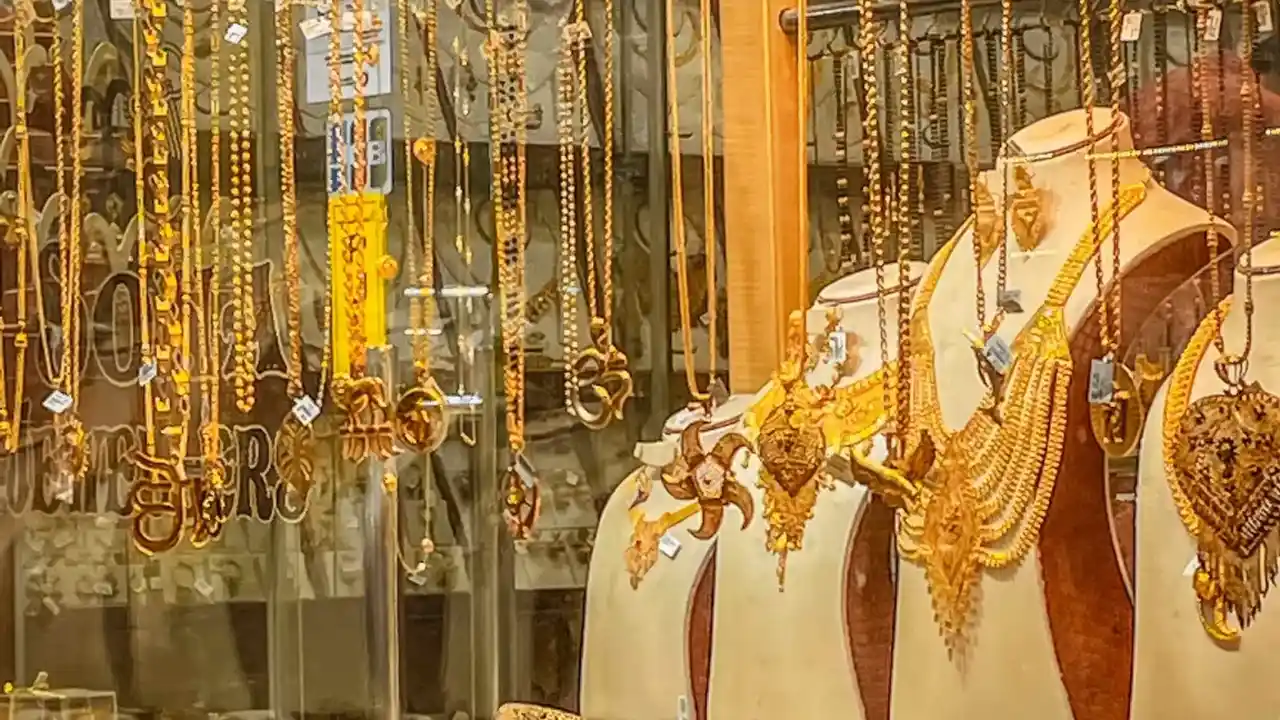Comparing Traditional Emirati Cuisine The Best Local Dishes
Savor the authentic flavors of Dubai. Compare and discover the best traditional Emirati dishes and where to find them for a true culinary experience.

Comparing Traditional Emirati Cuisine The Best Local Dishes
Hey there, food adventurers! You've landed in Dubai, a city known for its dazzling skyscrapers, luxury shopping, and thrilling adventures. But beyond the glitz and glamour, there's a rich tapestry of culture waiting to be explored, and nowhere is that more evident than in its food. Forget what you think you know about Middle Eastern cuisine; Emirati food has its own unique charm, deeply rooted in Bedouin traditions and the bounty of the sea. We're talking about hearty, aromatic dishes that tell stories of hospitality, trade routes, and a simpler way of life. So, buckle up, because we're about to embark on a delicious journey to compare and discover the best traditional Emirati dishes and where you can find them for a truly authentic culinary experience.
Emirati Breakfast Delights What to Start Your Day With
Let's kick things off with breakfast, because who doesn't love a good morning meal? Emirati breakfasts are often light yet satisfying, preparing you for a day of exploration. Two staples you absolutely have to try are Balaleet and Chabab.
Balaleet Sweet and Savory Vermicelli
Balaleet is a fascinating dish that perfectly encapsulates the Emirati love for combining sweet and savory. It's essentially sweet vermicelli noodles, often flavored with cardamom and saffron, topped with a thin, savory omelet. The contrast is surprisingly delightful. The sweetness of the noodles, often with a hint of rosewater, plays beautifully against the slight saltiness of the egg. It’s a comforting dish, often served during Eid or special occasions, but you can find it in many traditional Emirati restaurants.
Where to find it: Look for it at places like Al Fanar Restaurant & Cafe or Logma. Al Fanar is known for its authentic Emirati ambiance, making the experience even more special. A typical serving at these places might cost you around 30-45 AED.
Chabab Emirati Pancakes with Date Syrup
Think pancakes, but with an Emirati twist. Chabab are thin, fluffy pancakes made with flour, eggs, and often flavored with saffron and cardamom. They're typically served with a generous drizzle of date syrup (dibs) and sometimes cream cheese. The texture is somewhere between a crepe and a traditional American pancake, and the date syrup adds a natural, rich sweetness that's just irresistible. It’s a simple yet incredibly satisfying dish, perfect for dipping and sharing.
Where to find it: Again, Al Fanar is a great spot, as is Arabian Tea House Restaurant & Cafe in Al Fahidi Historical Neighbourhood. Expect to pay around 25-40 AED for a plate.
Main Courses Hearty Emirati Staples for Lunch and Dinner
When it comes to the main event, Emirati cuisine truly shines with its rich, aromatic, and often slow-cooked dishes. These are meals designed to be shared, reflecting the strong communal spirit of Emirati culture. Get ready for some serious flavor!
Machboos Aromatic Rice and Meat Dish
If there's one dish that screams 'Emirati cuisine,' it's Machboos. This is a fragrant rice dish cooked with tender meat (usually lamb, chicken, or fish) and a blend of aromatic spices like dried lime (loomi), cardamom, cloves, and cinnamon. The rice absorbs all the wonderful flavors from the meat and spices, resulting in a deeply satisfying and comforting meal. It's often garnished with fried onions and sometimes nuts. Every family has their own Machboos recipe, making each experience slightly unique.
Comparing Machboos Variations:
- Lamb Machboos: This is perhaps the most common and beloved version. The lamb is slow-cooked until it's fall-off-the-bone tender, infusing the rice with its rich flavor. It's a hearty and fulfilling option.
- Chicken Machboos: A lighter alternative, chicken Machboos is equally flavorful. The chicken is often cooked until it's succulent, and the spices really shine through.
- Fish Machboos: For seafood lovers, fish Machboos (often with local hammour or kingfish) offers a distinct taste of the Arabian Gulf. The fish is usually pan-fried or baked before being added to the rice.
Where to find it: You absolutely must try Machboos at Al Fanar Restaurant & Cafe or Sheikh Mohammed Centre for Cultural Understanding (SMCCU) for an authentic experience, often served in a traditional setting. Prices typically range from 70-120 AED depending on the meat and portion size.
Thareed Layered Bread and Vegetable Stew
Thareed is another cornerstone of Emirati cuisine, a truly ancient dish with roots in Bedouin hospitality. It's a comforting stew made with vegetables (like potatoes, carrots, and zucchini) and meat (lamb or chicken), served over thin, unleavened bread (regag). The bread soaks up all the delicious, savory broth, becoming soft and flavorful. It's a humble dish, but incredibly nourishing and packed with flavor. It’s often compared to a Middle Eastern lasagna, but with bread instead of pasta sheets.
Where to find it: Al Fanar and Arabian Tea House are excellent choices for Thareed. It's a dish that truly embodies home cooking. Expect to pay around 60-90 AED.
Harees Wheat and Meat Porridge
Harees is a simple yet profoundly significant dish in Emirati culture, especially during Ramadan and special occasions. It's a thick, porridge-like dish made from crushed wheat and meat (usually lamb or chicken), slow-cooked for hours until it reaches a smooth, almost creamy consistency. It's subtly spiced, often with just salt and pepper, and sometimes a drizzle of ghee (clarified butter) on top. The beauty of Harees lies in its texture and the deep, comforting flavor that comes from the long cooking process. It's incredibly nourishing and easy to digest.
Where to find it: While more common during religious festivals, some traditional restaurants like Al Fanar might offer it. It's also a staple at many local Emirati homes. Prices can vary, but expect around 50-80 AED.
Seafood Delights From the Arabian Gulf
Given Dubai's coastal location, it's no surprise that seafood plays a significant role in traditional Emirati cuisine. The Arabian Gulf provides a bounty of fresh fish, and Emiratis have perfected ways to prepare them.
Samak Mashwi Grilled Fish
Samak Mashwi simply means grilled fish, but in Emirati cooking, it's elevated to an art form. Fresh local fish like Hammour, Kingfish, or Sheri are marinated in a blend of spices, herbs, and sometimes dried lime, then grilled to perfection. The result is flaky, tender fish with a beautiful smoky flavor. It's often served with rice or fresh bread and a side of tangy tomato or chili sauce.
Where to find it: Many traditional seafood restaurants along the creek or in older parts of Dubai will offer excellent Samak Mashwi. Look for local fish markets that have attached restaurants, or try Bu Qtair Fish Restaurant for a more casual, authentic experience. Prices depend heavily on the type and weight of the fish, but generally start from 80 AED upwards.
Sweet Endings Emirati Desserts and Drinks
No meal is complete without something sweet, and Emirati desserts, while perhaps less globally known than some other Middle Eastern sweets, are equally delightful and often feature dates, saffron, and cardamom.
Luqaimat Sweet Dumplings with Date Syrup
These are little balls of pure joy! Luqaimat are small, crispy fried dumplings, similar to doughnuts, that are drenched in date syrup (dibs) and often sprinkled with sesame seeds. They're crispy on the outside and wonderfully soft and airy on the inside. The sweetness of the date syrup is perfectly balanced by the slight savory notes of the fried dough. They are incredibly addictive and a must-try for anyone with a sweet tooth.
Where to find it: You'll find Luqaimat at almost any traditional Emirati restaurant, including Al Fanar and Arabian Tea House. They are also popular street food during festivals. A small plate usually costs around 20-35 AED.
Khameer Emirati Flatbread
While often served with savory dishes, Khameer can also be a sweet treat. This is a soft, slightly leavened flatbread, often flavored with saffron and cardamom. When served sweet, it's typically drizzled with date syrup or honey, and sometimes spread with cream cheese. It's a versatile bread that perfectly complements both sweet and savory flavors.
Where to find it: Available at most traditional Emirati eateries. Prices are usually around 15-25 AED for a serving.
Emirati Coffee and Dates The Ultimate Welcome
You can't talk about Emirati hospitality without mentioning Gahwa (Arabic coffee) and dates. This isn't just a drink; it's a ritual, a symbol of welcome and generosity. Emirati coffee is light, often flavored with cardamom, and served in small, handle-less cups (finjan). It's meant to be sipped slowly, often accompanied by sweet, plump dates that perfectly balance the coffee's slight bitterness. You'll be offered this everywhere, from hotels to traditional homes, and it's an experience not to be missed.
Where to find it: Everywhere! Most traditional restaurants will offer it, and it's often complimentary in many settings. You can also buy high-quality Emirati dates at local markets and supermarkets.
Where to Experience Authentic Emirati Cuisine Top Spots and Hidden Gems
Now that your taste buds are tingling, let's talk about where to go to savor these incredible dishes. Dubai has a growing number of restaurants dedicated to preserving and promoting Emirati culinary heritage.
Al Fanar Restaurant & Cafe A Journey Back in Time
Al Fanar Restaurant & Cafe is probably the most well-known and accessible place to try authentic Emirati food. They have multiple branches, but the one in Dubai Festival City Mall offers a charming, traditional setting that transports you to old Dubai. The decor, the music, and the friendly staff all contribute to an immersive experience. Their menu is extensive, covering all the traditional dishes we've discussed, from Balaleet to Machboos. The quality is consistently high, and it's a great place for first-timers to get acquainted with the cuisine. Expect a meal for two to be around 150-250 AED.
Arabian Tea House Restaurant & Cafe A Serene Oasis
Located in the heart of the Al Fahidi Historical Neighbourhood, the Arabian Tea House Restaurant & Cafe offers a more serene and picturesque setting. It's famous for its beautiful courtyard, turquoise benches, and a relaxed atmosphere. While they offer a broader Middle Eastern menu, their Emirati breakfast and some traditional main courses are highly recommended. It's a perfect spot for a leisurely meal after exploring the historical district. Prices are similar to Al Fanar, perhaps slightly less for some items.
Sheikh Mohammed Centre for Cultural Understanding SMCCU Cultural Immersion
For a truly immersive experience, consider booking a cultural meal at the Sheikh Mohammed Centre for Cultural Understanding (SMCCU). This isn't just a restaurant; it's an educational experience. You'll sit on traditional floor cushions, enjoy a delicious Emirati meal, and engage in an open dialogue with an Emirati host about their culture, traditions, and, of course, food. It's an invaluable opportunity to learn directly from locals and understand the stories behind the dishes. This is a set experience with a fixed price, usually around 100-150 AED per person, and requires advance booking.
Logma Modern Emirati Flavors
If you're looking for a more contemporary take on Emirati cuisine, Logma is a fantastic choice. Located in Boxpark and other trendy spots, Logma offers traditional dishes with a modern twist, often presented in a more casual, cafe-style setting. They are particularly known for their delicious Khameer sandwiches and creative takes on traditional breakfast items. It's a great option for a quick, flavorful bite that still honors the roots of Emirati cooking. Prices are generally a bit lower than Al Fanar, with main dishes around 50-90 AED.
Bu Qtair Fish Restaurant Casual Seafood Gem
For a no-frills, incredibly authentic seafood experience, head to Bu Qtair Fish Restaurant near the Burj Al Arab. This place started as a humble shack and has grown into a local legend. You pick your fresh fish or prawns, they marinate it in their secret spice blend, and then fry or grill it to perfection. It's served with simple rice and curry sauce. The setting is very casual, often with plastic chairs and tables, but the food is outstanding and incredibly fresh. It's a cash-only spot, and prices depend on the weight of your chosen seafood, but it offers excellent value for money.
Bringing Emirati Flavors Home Essential Ingredients and Products
Inspired to try cooking some Emirati dishes yourself? Or perhaps you want to bring a taste of Dubai back home? Here are some key ingredients and products you might want to look for:
Dates The Sweet Gold of the Desert
Dates are central to Emirati culture and cuisine. You'll find an incredible variety in Dubai, from soft, caramel-like Medjool dates to drier, nuttier Kholas dates. They are a natural sweetener and a healthy snack. Look for premium quality dates, often sold in beautiful gift boxes, at supermarkets like Carrefour, Spinneys, or specialized date shops like Bateel. Bateel offers gourmet dates, often stuffed with nuts or candied fruit, and their prices reflect the premium quality (e.g., a small box of Bateel dates can range from 50-200 AED depending on variety and size).
Date Syrup Dibs The Natural Sweetener
This thick, dark syrup made from dates is a staple in Emirati kitchens. It's used to sweeten desserts like Luqaimat, drizzle over pancakes, or even as a natural sweetener in drinks. It's a healthier alternative to refined sugar and has a rich, complex flavor. You can find various brands of date syrup in any major supermarket in Dubai, typically costing around 15-30 AED per bottle.
Loomi Dried Limes The Tangy Secret
Dried limes, or loomi, are a crucial ingredient in many Gulf dishes, especially Machboos. They add a distinctive tangy, slightly smoky, and earthy flavor. You can buy them whole or ground. They are readily available in spice shops in the souks or in the spice aisle of supermarkets. A small bag of whole loomi might cost 10-20 AED.
Emirati Spice Blends Ready-Made Flavor
To recreate the authentic taste of Emirati dishes, look for ready-made Emirati spice blends. These often contain a mix of cardamom, cinnamon, cloves, black pepper, and other aromatic spices. They are perfect for seasoning rice dishes, stews, and meats. You can find them in supermarkets or at spice stalls in the souks. A typical packet might cost 20-40 AED.
Saffron The Golden Thread
Saffron is highly prized in Emirati cuisine for its vibrant color and distinct aroma. It's used in rice dishes, desserts, and even coffee. While it can be expensive, a small amount goes a long way. Look for high-quality Iranian or Kashmiri saffron in spice shops or gourmet food sections of supermarkets. Prices vary widely based on quality, but a small gram can be anywhere from 50-200 AED.
Final Thoughts on Your Emirati Culinary Journey
Exploring Emirati cuisine is more than just eating; it's about understanding a culture, its history, and its people. Each dish tells a story of resilience, hospitality, and a deep connection to the land and sea. So, as you navigate the bustling streets and dazzling malls of Dubai, take a moment to step into a traditional restaurant, savor the flavors, and let the food transport you to the heart of Emirati heritage. Enjoy every delicious bite!
:max_bytes(150000):strip_icc()/277019-baked-pork-chops-with-cream-of-mushroom-soup-DDMFS-beauty-4x3-BG-7505-5762b731cf30447d9cbbbbbf387beafa.jpg)






